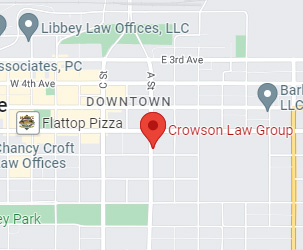Class Action: A Class Representative’s Role

When it comes to class action lawsuits there is a role provided for lead plaintiffs or class representatives. This article will discuss how lead plaintiffs are appointed and what responsibilities come with that role.
Where hundreds or even thousands of people are injured or suffer loss as a result of the same defendant’s actions or inaction this may result in a class action lawsuit. When certain procedural requirements are met, instead of the hundreds or thousands filing lawsuits as individuals they may be only one lawsuit filed as a class action lawsuit. It is important to note that a class action lawsuit must fulfill certain requirements in order to be certified as a class action, these requirements are laid out in the Federal Rules of Civil Procedure and are:
- Numerosity
- Commonality
- Typicality,and
- Adequacy
Once these four factors are met, the court will certify the class action lawsuit. However, in order to fulfill the third and fourth factors of typicality and adequacy it is necessary for there to be someone who speaks for the class in the class action lawsuit and this person is referred to as the class representative, lead plaintiff or named plaintiff.
Typicality requires that the claims of the class representative be typical of those of the class; that is to say that the class representative must have a similar or same claim as the rest of the class. The factor on adequacy requires that the class representative fairly and adequately protect the interests of the class. Therefore, when determining the suitability of the class representative, the representative’s claims must be the same or similar to the class and he or she must be able and willing to act in the best interests of the class. This basically means that the representative should:
- Have interests that are sufficiently intertwined and interrelated with those of the class Be familiar with the basics of the case
- Be willing to devote the necessary time and energy in order to fully resolve the class action
- Be free of conflict of interest
- Have no history of fraudulent behavior, however, he or she may have a criminal record.
The role of class representative has a lot of responsibilities that come with it. The representative works very closely with the attorneys handling the case and is often there in the court room or at conference tables during key points of litigation especially during formal settlement talks. Therefore, in order for an individual to be a class representative he or she must make significant commitment to the case as compared to the class members who do nothing while the class action progresses.
It is also important to note that although the class representative has a higher profile position as compared to the rest of the class, he or she is usually in the same position as all members of the class when it comes to attorney fees, therefore, there is no special treatment in this regard.
If you have suffered loss due to someone else’s negligence and wish to determine whether to be part of a class action or opt out contact Anchorage law firms.


